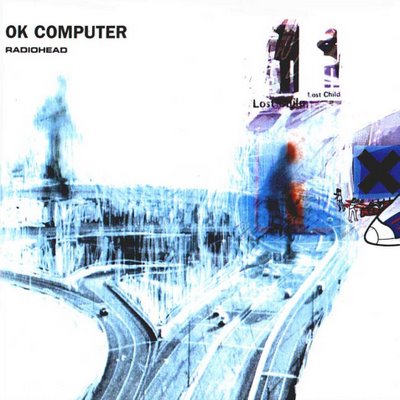 There’s a track on Radio head’s “OK Computer†called “fitter happier,†a checklist of social norms dictated by a machine. Its lyrics and tone are cold and frightening, without rhyme or rhythm: “No chance of escape/Now self-employed/Concerned, but powerless/An empowered and informed member of society; pragmatism, not idealism.†I used to wonder how “fitter happier†became the seventh track on the album – surely it would’ve worked better as an intro? Weren’t we meant to wake up in a dystopia where computers have driven free-thought and individuality to extinction? Not quite. “OK Computer†is more concerned with the transition to the computer age, and highlights our struggle to adapt. I think Radiohead made the right choice – “OK Computer†is an album that paces itself, and by the time we hear “fitter happier,†it sounds unexpected and alarming.
There’s a track on Radio head’s “OK Computer†called “fitter happier,†a checklist of social norms dictated by a machine. Its lyrics and tone are cold and frightening, without rhyme or rhythm: “No chance of escape/Now self-employed/Concerned, but powerless/An empowered and informed member of society; pragmatism, not idealism.†I used to wonder how “fitter happier†became the seventh track on the album – surely it would’ve worked better as an intro? Weren’t we meant to wake up in a dystopia where computers have driven free-thought and individuality to extinction? Not quite. “OK Computer†is more concerned with the transition to the computer age, and highlights our struggle to adapt. I think Radiohead made the right choice – “OK Computer†is an album that paces itself, and by the time we hear “fitter happier,†it sounds unexpected and alarming.
Capitol Records was so confused by “OK Computer†that they couldn’t even decide what its first single would be. The band settled on “Paranoid Android,†the album’s towering high point. At over six minutes, “Paranoid Android†is a rock epic that sounds frightened, sadistic and remorseful (in that order). Lead singer Thom Yorke’s vocals are angelic throughout, but their intensity varies according to their surroundings – a voice that dominates a largely acoustic ensemble on one line seems stranded in a maze of electronics on the next.
It helps that the lyrics are sung with the intimate tone they needed – in print form, a lyric like “The panic, the vomit/The panic, the vomit/God loves his children/God loves his children/Yeah!†simply doesn’t work.
Likewise, the melody on “Karma Police†is dramatic and graceful, but the lyrics are resentful and vicious – an eerie balance. Instead of a comfortable fadeout, the song climaxes with a subtle transition into digital noise, returning the album to its focus on technology. With its depiction of tyranny (“Karma police/Arrest this girl…We have crashed her party…This is what you get when you mess with usâ€) “Karma Police†is “OK Computer†at its most Orwellian.
The lyrics to “No Surprises†reflect on the agony of conformity, made all the more effective by the coaxing but monotonous glockenspiel jingle. The words feel stirring but artificial – the line “Bring down the government/They don’t, they don’t speak for us†reportedly conjured cheers during recent American performances. Yorke actually wanted to conclude “OK Computer†with “No Surprises,†but later decided to close with “The Tourist,†a gentle finale where the album reconsiders its theme but doesn’t surrender it.
As music becomes more driven by radio airplay, the material on “OK Computer†stands as genuine, album-oriented rock. There isn’t a trace of pessimism on “Airbag,†even as its lyrics celebrate world war and a near-death experience (“I’m amazed that I survived/An airbag saved my lifeâ€). “Exit Music (For a Film)†is a touching ballad, but the fate of its lovers is sad and open-ended.
“OK Computer†has deeper meaning for Radiohead fans as the band’s transition into less navigable waters. (Sure, “Kid A†debuted at number one on the Billboard 200, but when was the last time you felt like listening to it?)
There’s no such thing as a typical Radiohead album. The band re-evaluates itself with one LP after another – the fame they longed for on “Pablo Honey†was what made them feel entrapped on “The Bends.†Although their more personal material has its own power, “OK Computer†is the most universally concerned album they’ve ever made. Many early reviews hailed its prophecy, and claimed Radiohead was years ahead of its time. I think they were right on the money: Napster, the Internet-music source which many attribute to the decline of the recording industry, was introduced only two years later.

Leave a Reply